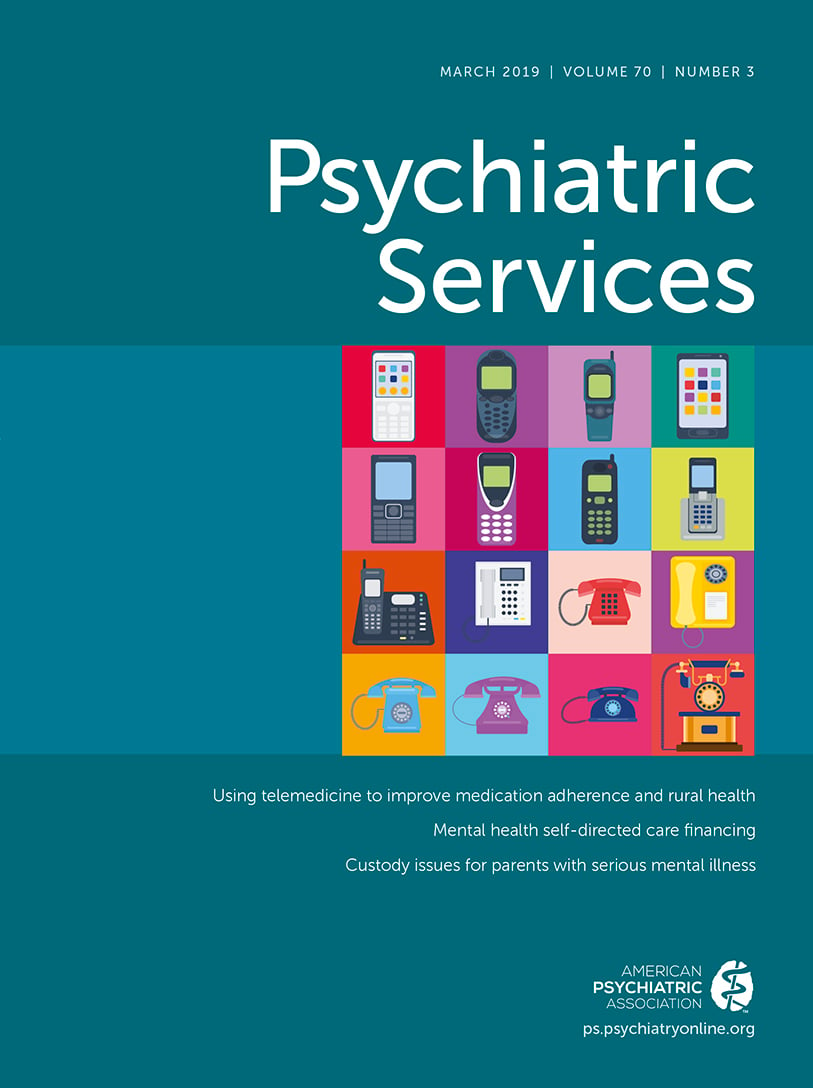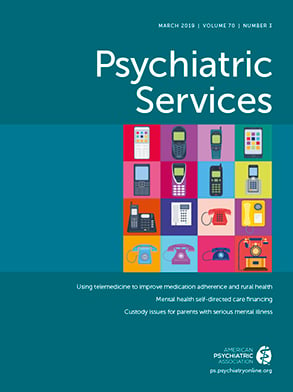Kaplan and colleagues’ groundbreaking study on child protective services (CPS) involvement with parents who have a serious mental illness and their families raises critical issues about the disparities experienced by these families, the importance of appropriate support, and the urgent need for greater attention from practitioners and policy makers to ensure positive outcomes for adults and children whenever possible (
1). Indeed, it is essential to highlight the significance of these findings together with their critical practice and policy implications.
Although people with and without serious mental illness have similar rates of parenthood, parents with serious mental illness are significantly more likely to report contact with CPS and loss of custody of their children. Importantly, among parents with serious mental illness in this study, nearly twice as many did not have CPS contact as did. Study findings do not indicate that parents with serious mental illness have higher rates of child maltreatment than the general population of parents. Survey parameters and methods and potential reporting biases do not allow for this conclusion. CPS involvement is not necessarily a proxy for child maltreatment. In other words, it is not clear that the disproportionately high rate of CPS involvement necessarily reflects a more significant risk of child maltreatment among parents with serious mental illness.
The investigators examined whether parents with serious mental illness had contact with CPS, although the study did not address the question why. As discussed in the article, serious mental illness alone does not necessarily “cause” the removal of children by CPS. Social and environmental risk factors for CPS involvement (e.g., poverty, unemployment, and housing and food instability) are often found among parents living with serious mental illness (
2). However, the disproportional scrutiny these families experience may reflect the generalization that serious mental illness is associated with a determination of risk. In day-to-day CPS practice, the perception or confirmation of a parent’s serious mental illness may routinely be entered into the risk equation. For example, Kaplan et al.’s finding that fathers with serious mental illness were more likely than mothers to report a change in living arrangements as a result of CPS contact may highlight the common assumption that men with serious mental illness are likely to be violent. Policies require that heightened risk be attended to more carefully, potentially prompting more monitoring and action on the part of CPS. Hence, more parents with serious mental illness experience greater CPS involvement not necessarily because their children are at increased risk but because perceptions about having a serious mental illness raise red flags.
The legal system often also contributes to greater scrutiny of parents with serious mental illness (
3). Many of the provisions in the Adoption and Safe Families Act (ASFA), the federal law governing CPS, adversely affect these parents. For example, parents with serious mental illness often have difficulty complying with the law’s strict timelines for reunifying families because accessing services and support can be time intensive. ASFA also allows states to deny reunification services and support in certain circumstances, including when parents have a serious mental illness. Parents with a serious mental illness often have difficulty accessing legal representation because of costs as well as the legal profession’s lack of understanding about mental health (
4). Moreover, attorneys and judges sometimes harbor biases against parents with serious mental illness, presuming that they are unfit to safely raise children.
To be sure, the unnecessary involvement of CPS and consequent custody loss may negatively affect children and parents alike. Children who are removed from their homes are more likely than children in intact homes to experience deleterious outcomes, including trauma. Similarly, family disruption often results in parents experiencing significant pain of separation and loss. Parents with a serious mental illness may have increased difficulty coping with these adverse experiences. Involvement with CPS may worsen parental mental health, which, in turn, decreases the likelihood of recovery or reunification. Because of the deleterious outcomes associated with out-of-home placement of children, family disruption should be avoided whenever possible.
Undoubtedly, there is an urgent need to support parents with serious mental illness and their families. Wraparound services that encourage collaboration across sectors, including early intervention, mental health services, and CPS, can address the needs of the whole family. Services and support must be readily accessible to families so that parents do not have to fail (i.e., be reported to CPS) in order to meet eligibility requirements. There are times when children may need to access alternative caregivers or respite care temporarily, such as when their parents would benefit from psychiatric hospitalization. Parents need information about how they can access services and support to create plans for their children’s care in advance of a crisis, without risking custody loss.
Mental health providers must support people with serious mental illness in their role as parents. Effective service delivery models, such as assertive community treatment, supported employment, and care management can be adapted or tailored to address their needs (
5). Providers must be trained, supported, and given incentives to consider the parenting roles and goals of adult service recipients. It is our contention that parenting is a life-long pursuit and that capacity building for parenthood begins prior to pregnancy. Youths can be supported in acquiring essential skills, resources, and support before they become parents. Policy makers must address the inequities experienced by parents with a serious mental illness in relation to assumptions and stereotypes that support unjust practices.
Not all adults with a serious mental illness are capable of parenting their children well. Some may choose not to become parents or may voluntarily relinquish to others the responsibility for rearing their children and should be supported in making these choices. Access to supported parenting should be available to adults living with a serious mental illness in the same way as supported employment, supported education, or supportive housing. Those who want to become parents must have access to resources and support essential to informed decision making and to success in this important life domain.
Recovery in mental health is a relational process, with the goal of interdependent living. Parenting provides entry to community inclusion. Parenting well contributes to optimal health and functioning, to community inclusion for adults with a serious mental illness who are parents, and to positive developmental outcomes for their children.

